#fred hechinger icons
Explore tagged Tumblr posts
Text





















Simon — Fear Street: 1994 (2021)
#icons#fred hechinger#fred hechinger icons#fredhechingeredit#fhechingeredit#fear street#fear street 1994#fear street icons#fear street 1994 icons#fearstreetedit#2021#netflix icons#netflixedit#screencaps#twitter icons#horror icons#icons without psd#horroredit#movie icons#movieedit#movies icons#filmedit#slasher icons#slasheredit
184 notes
·
View notes
Text
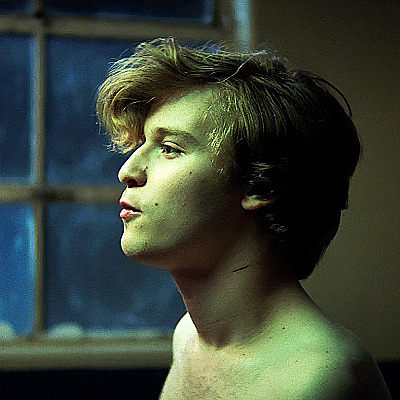
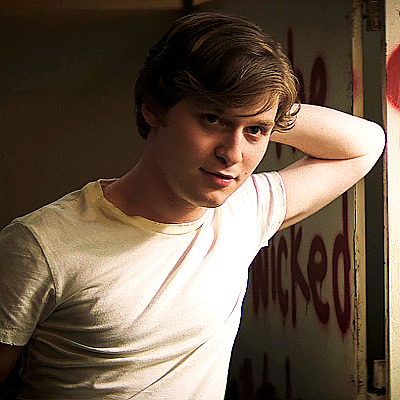

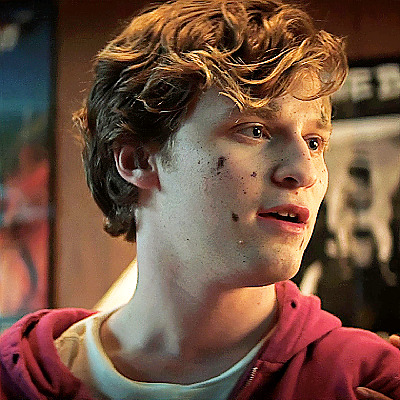

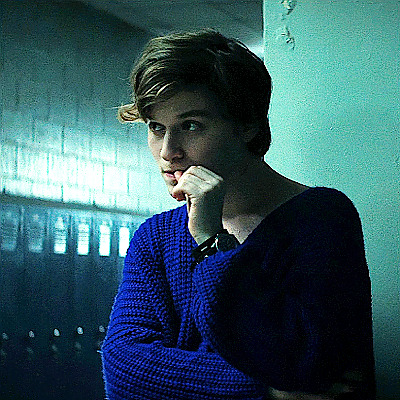
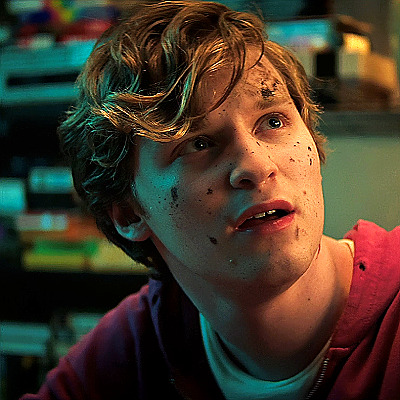

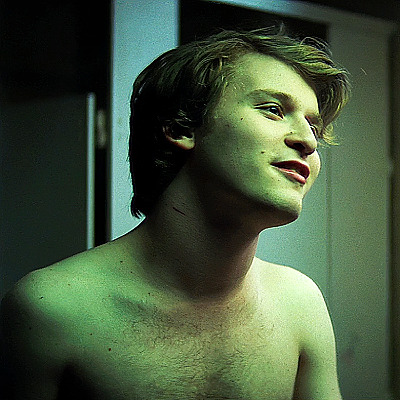
Fear Street: 1994 (2021) dir. Leigh Janiak.
#icons#movies icons#fred hechinger#fred hechinger icons#fear street#fear street icons#fear street 1994#fear street 1994 icons#simon fear street#icons without psd#twitter icons#filmedit#tvandfilm#moviesedit#horroredit#halloween#horror#actors icons#fearstreetdaily#fearstreetedit
187 notes
·
View notes
Text








they can eat war - let them eat cake
#tumblr#gladiator 2#gladiator ii#marie antoinette#emperor caracalla#emperor geta#me core#me coded#aesthetic#girlblogging#movies#moodboard#kirsten dunst#joseph quinn#fred hechinger#sofia coppola#ridley scott#letterboxd#girlblogger#icons
169 notes
·
View notes
Text
I was not at all interested in seeing Gladiator II on account of the fact I never watched the first one but we ended up getting tickets for the wrong day for the movie we wanted to see, and we were already at the theater, so we watched it
And let me tell you, those awful twin emperors lit a fire in my brain. Every time they were on screen and every time the other villain was on screen I was having a great time. Fred Hechinger and Joseph Quinn ate and left no crumbs
#gladiator 2#gladiator ii#fred hechinger#joseph quinn#emperor caracalla#emperor geta#iconic#iconic and captivating#the movie was too long and very bloody and so it's not a 4 star movie but it was way better than expected#3.5 stars probably
35 notes
·
View notes
Text
⭑ Main Masterlist ⭑


⊹ ࣪ ˖ Welcome to my blog, I write for multiple fandoms but mainly for House of The Dragon, English is not my first language mistakes might happen. This blog contains mainly nsfw content, so mdni! My messages are always open and I love to talk to moots and followers so feel free to send a message :)
⊹ ࣪ ˖ Rules regarding requests: Nothing involving non-con, r-pe, torture etc. Otherwise I'm a freak and anything else is fine ;)
⊹ ࣪ ˖ Requests: Open!
✧ HOTD Masterlist
✧ Ewanverse Masterlist
✧ Tom Glynn-Carney Characters Masterlist
✧ GOT Masterlist
✧ TBOSAS Masterlist
✧ Separate Worlds Series Masterlist (Michael Gavey Fanfic)
✧ Misc. Masterlist
✧ Works in progress
✧ Smuffmass 2024 Masterlist
✧ Fred Hechinger Characters Masterlist
✧ Gladiator Masterlist (Coming soon)
✧ Domina Mea Masterlist (Caracalla & Geta x Reader Series)

⊹ ࣪ ˖ All credit to the artist of the aemond icon, dividers found on @saradika
#house of the dragon#hotd#hotd smut#aemond targaryen#aemond x reader#aegon x reader#aegon targaryen x reader smut#robb stark x reader#game of thrones#got#masterlist#ewan mitchell#tom glynn carney#wip#michael gavey
66 notes
·
View notes
Text
The fact that Sir Ridley Scott said in an interview at the Alien: Romulus premiere that he doesn’t audition actors, he just decides he wants them in his films, and that he cast Paul Mescal in Gladiator II because he saw him in ‘Normal People’ implies that he must have seen Joseph Quinn on Stranger Things and Fred Hechinger in The White Lotus, and he then went “fuck yeah I want them in my film as demented twin emperors, get their agents on the phone” and honestly? That’s kind of iconic of all three of them, I won’t lie

#it could have been other projects but those were just the first two that popped into mind#maybe sir Ridley is a fear street fan who knows?#ridley scott#gladiator ii#gladiator 2#joseph quinn#fred hechinger#emperor geta#emperor caracalla#I am aware someone else was cast as Geta and Joe was supposed to be Caracalla but then Barry dropped out and so Joe was changed to Geta#and then they brought Fred in to he Caracalla but still!#Ridley 100% saw one of Fred’s projects and said ‘YES HIM GET ME THAT LITTLE WEIRDO’ (in a pos way)
118 notes
·
View notes
Note
✨ WishWednesday ✨oder ist es einfach nur ein anderer wip wednesday, in a way? :D egal! Gibt es faceclaims die du sehr gerne einmal nutzen würdest (aber noch nicht dazu gekommen bist?)
es gibt tatsächlich ein paar fcs, die auf meiner liste stehen - die meisten schon in verbindung mit ocs/oc-ideen. ich glaube damit zweckentfremde ich die frage ein bisschen zu "fcs & ocs, die ich gerne verwenden würde", aber egaaaaaal :')
boys:


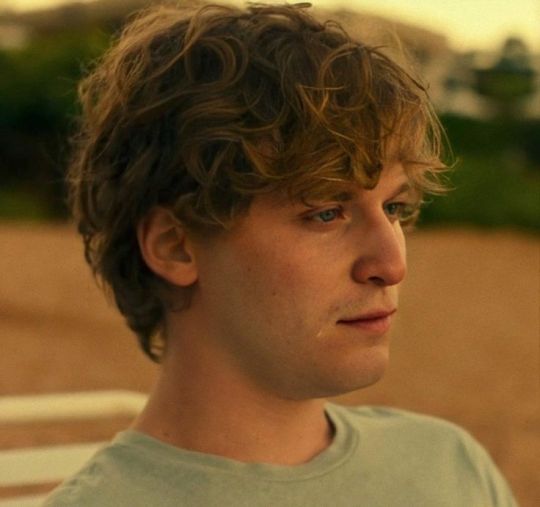
the iconic do hanse, den ich als dorian bei abel im steckbrief mit einbaue. er soll aber auch dringend irgendwann ein eigenständiger oc werden.
thomas tapy hab ich zwar schon ein paar mal in ffs gesehen, aber nicht ohne grund - ich finde seine facial structure so cool irgendwie? angedacht habe ich ihn für ein potenzielles projekt von @aieviana c: (das aber noch bisschen braucht soll ich ausrichten)
seitdem ich gladiator 2 gesehen habe, bin ich dezent obsessed mit fred hechinger. ich weiß noch nicht, ob er mir zu bekannt ist als fc, aber eigentlich ist mir das auch egal :'D eine konkrete idee habe ich eh noch nicht.
girls



heather kemesky habe ich momentan für meine bajoran-human captain eingeplant. das konzept steht, es fehlt nur noch die story😔 (edit: star trek btw, falls das nach dem half-bajoran nicht klar war)
alisha boe (in the buccaneers) ist für mein noch recht formloses boaf-konzept, das ich offiziell gar nicht habe, aber irgendwie doch. weil schnauzer.
wenn ich bei sun zhenni nicht mehr als pianran aus till the end of the moon im kopf habe, möchte ich sie echt gerne mal als fc verwenden. gleiches gilt für meng ziyi, aber ich fürchte, sie bleibt für mich für immer wen qing :')
24 notes
·
View notes
Text

KRAVEN THE HUNTER screencaps.
Linked above is a folder with a zip file that contains screencaps of Kraven the Hunter (2024). This cast includes: Aaron Taylor-Johnson, Ariana DeBose, Fred Hechinger, Alessandro Nivola, Russell Crowe, and more. All of these screencaps were made by me using 1080p footage. There are about 3,444 caps. These screencaps can be used for icons, edits, promos, and anything for personal use. If you want to make/sell base icons or use any of my caps in commission work, talk to me first.
Please contact me if you have issues with the file.
⚠️ WARNING: these caps feature blood, violence, murder, death, animal death, etc…
💖 LIKE/REBLOG: please like/reblog this post if you download these caps.
📄 CREDIT: please like/reblog this post. since i cap films and shows with little or no resources, i ask that you also consider leaving credit somewhere on your blog/docs/carrd so that more people can find these caps.
#kraven the hunter#kraven the hunter screencaps#rp resources#Aaron Taylor-Johnson#Ariana DeBose#Fred Hechinger#Alessandro Nivola#Russell Crowe#*mine
9 notes
·
View notes
Text

Kraven: The Hunter New Poster & Trailer Drops
Kraven the Hunter is the visceral, action-packed origin story of how and why one of Marvel's most iconic villains came to be. Aaron Taylor-Johnson plays Kraven, a man whose complex relationship with his ruthless father, Nikolai Kravinoff (Russell Crowe), starts him down a path of vengeance with brutal consequences, motivating him to become not only the greatest hunter in the world, but also one of its most feared.

Directed by: J.C. Chandor
Story by: Richard Wenk
Screenplay by: Richard Wenk and Art Marcum & Matt Holloway
Based on the Marvel Comics
Produced by: Avi Arad Matt Tolmach David Householter
Cast: Aaron Taylor-Johnson Ariana DeBose Fred Hechinger Alessandro Nivola Christopher Abbott and Russell Crowe
This film is rated R by the Motion Picture Association for the following reasons: strong bloody violence, and language.
youtube
8 notes
·
View notes
Text
Kraven the Hunter (2024): A New Era for the Legendary Villain
Watch Kraven The Hunter here : https://bit.ly/49sQiib

The world of Spider-Man has always been populated with fascinating, complex characters, both heroes and villains. Among the most intriguing of these is Sergei Kravinoff, better known as Kraven the Hunter. In 2024, Kraven takes center stage in his own solo film, Kraven the Hunter, marking a significant step in the expansion of Sony's Spider-Man Universe (SSU). Directed by J.C. Chandor, this film aims to give audiences a fresh perspective on one of Marvel's most infamous antagonists.
The Storyline
Kraven the Hunter follows the origin story of Sergei Kravinoff, played by Aaron Taylor-Johnson, a ruthless and highly skilled hunter with a dark past. Known for his obsession with proving himself as the world's greatest hunter, Kraven's pursuit of prey takes on a more dangerous and personal edge in the film. The story delves deep into Kraven's motivations, tracing his journey from an elite hunter to a vigilante driven by vengeance.
In this adaptation, the character’s moral compass appears to shift. Unlike the traditional portrayal of Kraven as a villain solely focused on defeating Spider-Man, the movie reimagines him as an antihero, fighting against those he sees as greater threats to humanity. This nuanced approach is central to the film's narrative, exploring Kraven’s internal battle between his violent nature and his desire for justice.
Kraven’s Complex Character
What sets Kraven the Hunter apart from other superhero movies is its focus on character depth. While many films in the superhero genre often highlight larger-than-life battles, Kraven emphasizes the psychological and emotional layers of its protagonist. The film portrays Kraven as a man driven by deep-seated trauma, challenging the audience to empathize with his motivations, even if they don't necessarily condone his methods.
In the film, Kraven's brutal nature is contrasted with his personal sense of honor and code, which influences his decisions throughout the story. As Kraven pursues his personal vendettas, he becomes entangled with the criminal underworld and faces off against some of his greatest foes, including Chameleon, portrayed by Fred Hechinger.
A Fresh Take on the Marvel Universe
While Kraven is often associated with his rivalry with Spider-Man in the comics, the film takes a different route by focusing less on the web-slinger and more on Kraven's own journey. The film’s world-building is expected to integrate more grounded elements, with Kraven’s quest for survival and justice playing out on a more realistic level compared to other superhero fare.
In addition, the movie explores Kraven’s relationship with his family, particularly with his father, who has a significant influence on his life choices. This familial dynamic provides added emotional depth to the character and underscores the internal struggles that make Kraven such a compelling figure in the Marvel universe.
The Cast and Crew
Aaron Taylor-Johnson’s casting as Kraven has generated significant buzz, with many fans eager to see the actor, known for his roles in Kick-Ass and Avengers: Age of Ultron, bring a new energy to the iconic villain. Alongside him, the film features a stellar supporting cast, including Ariana DeBose as Calypso, Russell Crowe as Kraven’s father, and Christopher Abbott in an undisclosed role that promises to add intrigue to the narrative.
The film is directed by J.C. Chandor, known for his work on films like Margin Call and A Most Violent Year. Chandor’s experience with intense, character-driven narratives suggests that Kraven the Hunter will not only be an action-packed thrill ride but also an exploration of moral complexity and human psychology.
A New Direction for Sony’s Spider-Man Universe
Kraven the Hunter is a pivotal film in Sony's ongoing effort to expand its Spider-Man Universe. Following the success of Venom and Morbius, the studio is looking to build on its collection of antiheroes and villains. By focusing on Kraven's character and offering a darker, more mature tone, Sony hopes to carve out a unique niche within the larger Marvel landscape.
The success of Kraven the Hunter could also pave the way for future films exploring lesser-known Marvel characters. With the film's mix of action, character development, and a unique approach to the superhero genre, it has the potential to resonate with both longtime comic book fans and casual moviegoers alike.
Conclusion
Kraven the Hunter promises to be a thrilling, complex addition to the superhero movie landscape. By delving into the psyche of one of Marvel's most iconic antiheroes, the film seeks to redefine what it means to be a "villain" in the modern superhero era. With a strong cast, a unique narrative direction, and a director known for creating compelling, character-driven stories, Kraven the Hunter is set to be one of 2024’s most anticipated films, offering a fresh take on a legendary character.
0 notes
Text

Ridley Scott’s Gladiator II is a resounding success that breathes new life into the legendary 2000 classic, combining breathtaking spectacle, gripping drama, and a thematic richness that echoes across generations. With a script penned by David Scarpa and bolstered by a stellar ensemble cast led by Paul Mescal, Pedro Pascal, and Denzel Washington, this sequel proves itself a worthy successor, delivering a grandiose cinematic experience while exploring poignant questions of legacy, revenge, and redemption. https://www.youtube.com/watch?v=4rgYUipGJNo A Legacy Revived with Purpose: Set sixteen years after the events of Gladiator, the film artfully bridges the original's narrative with a compelling new story that centers on Lucius Verus Aurelius (Paul Mescal), now grown and thrust into a maelstrom of political corruption, personal tragedy, and gladiatorial combat. Mescal delivers an emotionally charged performance, capturing Lucius’ transformation from a grieving widower to a battle-hardened warrior seeking justice. His nuanced portrayal anchors the film, echoing the intensity Russell Crowe brought to Maximus while carving out a distinctly different path for Lucius. Denzel Washington, as the enigmatic Macrinus, steals scenes with an authoritative and layered performance. As a former slave turned gladiatorial stable master with imperial aspirations, Washington’s portrayal is both chilling and deeply human. Pedro Pascal’s General Acacius exudes a weary nobility, making his character’s arc resonate with both tragedy and valor. An Expansive and Detailed World: Ridley Scott’s direction is, unsurprisingly, masterful. The landscapes of Gladiator II range from the sunlit deserts of Numidia to the grandeur of Rome. They vividly realized this through awe-inspiring production design and seamless visual effects. The Colosseum sequences are breathtaking, featuring colossal naval battles and intensely choreographed gladiatorial duels that pulse with energy and danger. The film’s world-building is meticulous, presenting a Rome at the height of its decadence under the twin emperors Geta (Joseph Quinn) and Caracalla (Fred Hechinger). Their grotesque opulence contrasts sharply with the gritty lives of the enslaved gladiators, highlighting the disparity that fuels the film’s central conflicts. Themes of Power, Identity, and Redemption: At its core, Gladiator II delves into the enduring struggle between personal vengeance and societal reform. Lucius’ journey is not merely one of survival but a quest to redefine Rome’s future. The revelation of his lineage ties his story thematically to Maximus’ legacy, emphasizing the cyclical nature of history and the enduring hope for a better Rome. The screenplay by Scarpa and Peter Craig deftly weaves intimate moments of character development with the sweeping political drama. Scenes of quiet introspection, such as Lucius’ interactions with the gladiatorial doctor Ravi (Fred Hechinger), provide a stark contrast to the visceral brutality of the Colosseum, enriching the narrative with emotional depth. A Feast for the Senses: Harry Gregson-Williams' music is as mesmerizing as ever. It blends haunting new motifs with echoes of the iconic themes from the original film. The music amplifies the tension and majesty of each scene, cementing the film’s emotional impact. Cinematographer John Mathieson's use of light and shadow adds a painterly quality to the visuals. Whether capturing the golden hues of Numidia’s deserts or the shadowy corridors of Roman politics, each frame feels meticulously crafted. The film’s editing, courtesy of Claire Simpson, ensures a relentless pace without sacrificing clarity or emotional resonance. A Few Minor Quibbles: While Gladiator II is a remarkable achievement, it is not without flaws. The dual emperors, while entertainingly grotesque, occasionally veer into caricature, which can undercut the gravity of their scenes. Additionally, the film’s reliance on exposition in its first act slows the pacing slightly before the narrative finds its stride. In Gladiator II, Ridley Scott has created an epic that honors its predecessor while forging a bold new path. It delivers all the grandeur and intensity fans of the original could hope for, while exploring deeper emotional and thematic territory. Mescal, Washington, and Pascal lead an exceptional cast, bringing humanity and complexity to a world defined by power and violence.
0 notes
Text
Kraven the Hunter is an upcoming American superhero film featuring the Marvel Comics character of the same name. Directed by J. C. Chandor from a screenplay by Richard Wenk and the writing team of Art Marcum and Matt Holloway, the film stars Aaron Taylor-Johnson in the title role, alongside Ariana DeBose, Fred Hechinger, Alessandro Nivola, Christopher Abbott, and Russell Crowe. Produced by Columbia Pictures in association with Marvel Entertainment, it is intended to be the sixth film in Sony's Spider-Man Universe (SSU). The film explores Kraven's complex relationship with his father and his path to becoming the greatest hunter.Aaron Taylor-Johnson pulled off a major surprise on Marvel fans when he dropped the new R-rated trailer for his upcoming film 'Kraven: The Hunter'. The film, which dives into the origins of one of Spider-Man's most formidable foes, promises a grittier, more violent take on the Marvel anti-hero genre. The trailer showcases Taylor-Johnson as Sergei Kravinoff, a skilled hunter who transforms into the iconic villain, Kraven the Hunter.
Watch more click here
0 notes
Text

A new trailer was unveiled, increasing the anticipation for the "Kraven the Hunter" film.
Starring #AaronTaylorJohnson as #Kraven, with Russell Crowe, Ariana DeBose, Fred Hechinger, and Alessandro Nivola in key roles, the film promises a thrilling and more comic-accurate portrayal of iconic characters like #Rhino. Directed by J.C. Chandor and boasting an R-rating, "Kraven" showcases #Sony's commitment to delivering a darker, grittier take on the #SpiderMan Universe.
As fans await this highly anticipated release, they can also look forward to "Venom: The Last Dance," the final chapter in the Venom trilogy, and the animated "Beyond the Spider-Verse," further solidifying Sony's ambitious vision for its expanding Spider-Man Universe.
0 notes
Text
New trailer for ‘KRAVEN THE HUNTER’ has been released.

The highly anticipated trailer for Sony Pictures’ upcoming film, “Kraven the Hunter,” has finally been released, giving fans a thrilling glimpse into the origin story of one of Marvel’s most iconic villains. Starring Aaron Taylor-Johnson as the titular character, the trailer promises a visceral and action-packed journey. The trailer showcases Kraven’s backstory, his motivations, and his brutal methods as he hunts down criminals and villains. Fans can expect intense action sequences, dramatic confrontations, and a deeper look into Kraven’s complex character. The film also features a stellar cast, including Ariana DeBose, Fred Hechinger, Alessandro Nivola, Christopher Abbott, and Russell Crowe. Directed by J.C. Chandor, “Kraven the Hunter” is set to hit theaters on December 12, 2024. The film is expected to be a significant addition to Sony’s Marvel Universe, expanding the lore and setting the stage for future stories. Read the full article
0 notes
Text
First images of Paul Mescal and Pedro Pascal in 'Gladiator II'
New Post has been published on https://qnews.com.au/first-images-of-paul-mescal-and-pedro-pascal-in-gladiator-ii/
First images of Paul Mescal and Pedro Pascal in 'Gladiator II'

The first images of Paul Mescal and Pedro Pascal in Ridley Scott’s Gladiator II have been released.
A sequel to 2000’s Gladiator starring Russell Crowe and Joaquin Phoenix, the new film brings us a new cast of heroes and villians.
The sequel is set to take place decades later and centers on Mescal’s character, Lucius Verus.
The son of a former co-emperor, Lucius has lived a peaceful life in Numidia for 15 years until he is captured by Roman soldiers led by Pascal’s Marcus Acacius and forced into slavery. The plot thickens as Lucius, now a gladiator, seeks to free the Empire from the cruel rule of Emperors Caracalla and Geta, played by Fred Hechinger and Joseph Quinn.
View this post on Instagram
A post shared by Vanity Fair (@vanityfair)
In an Vanity Fair exclusive, the first images of the upcoming film have been released and the cast have spoken out about their experience filming the long-awaited sequel.
As described by Paul Mescal, Gladiator II explores the extremes of human behaviour. Stating it explores “what human beings will do to survive, but also what human beings will do to win.” The film opens with Lucius (Mescal) living a peaceful life with his wife and baby until his homeland is threatened by Roman conquerors.
Director Ridley Scott elaborates: “Lucius has taken root in a seacoast town in Numidia, one of the last surviving civilisations as the Romans descend on North Africa, intent on domination.”
While we don’t know if Gladiator II will have any queer themes, both Mescal and Pascal have recently played iconic queer roles.
Mescal, of course, in All of Us Strangers alongside Andrew Scott and Pascal in gay cowboy short film A Strange Way of Life.
Gladiator II is slated to screen in Australia from November 22, 2024.
Read More:
All of Us Strangers: Paul Mescal and Andrew Scott’s ‘ghostly gay romance’
Daniel Craig flick Queer has ‘scandalous’ gay sex scenes
Everything we know about ‘Red, White & Royal Blue 2’
Saltburn soundtrack vinyl is filled with cloudy bathwater
For the latest LGBTIQA+ Sister Girl and Brother Boy news, entertainment, community stories in Australia, visit qnews.com.au. Check out our latest magazines or find us on Facebook, Twitter, Instagram and YouTube.
0 notes